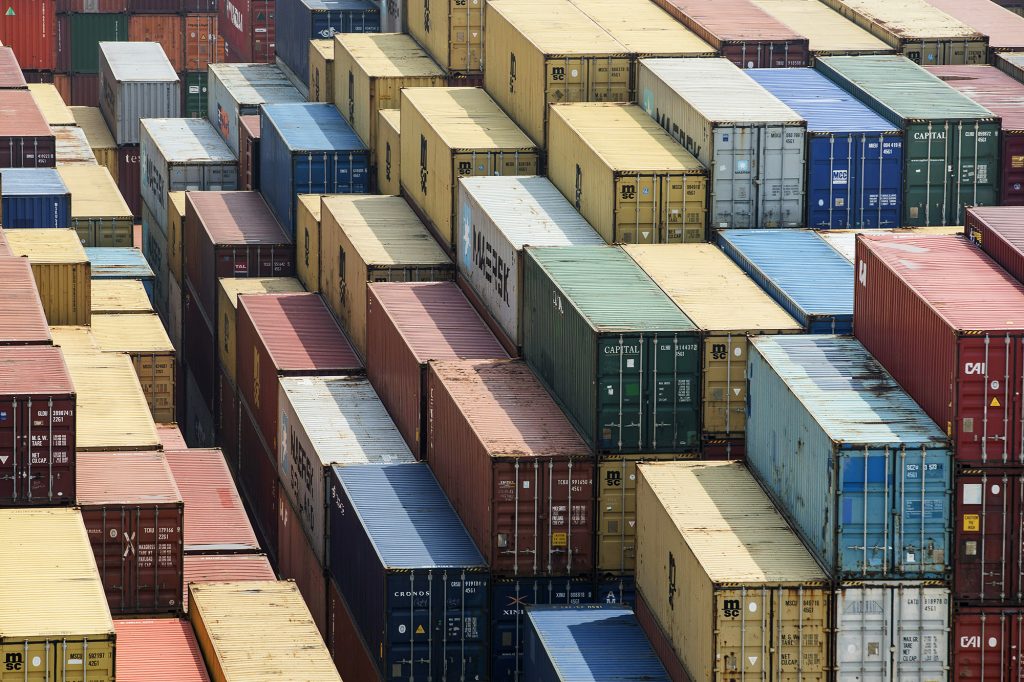
SACRAMENTO — American retailers and manufacturers rushed to place orders with Chinese suppliers after the United States and China announced a temporary rollback of reciprocal tariffs, creating a 90-day window to rebuild depleted inventories, reported Xinhua.
“We’re starting to move everything,” said Jay Foreman, chief executive of Florida-based toy company Basic Fun, who jumped out of bed at 4 am Monday local time (1100 GMT) when he learned about the tariff reduction.
“We have to call trucking companies in China to schedule pickups at the factories. And we have to book space on these container ships now,” he told The New York Times.
The temporary tariff reduction, announced Monday following weekend negotiations between the two biggest economies in the world, triggered an immediate response from American businesses eager to secure merchandise before the three-month reprieve expires.
“I have clients with thousands of containers preloaded in China that are ready to come in,” said Paul Brashier, vice president of global supply chain at ITS Logistics, in an interview with CNBC Tuesday. “Over the next four to six weeks, we expect a surge of containers.”
Major retailers, including Walmart and Target, which had previously suspended or reduced orders from Chinese factories due to tariff uncertainties, are now actively resuming business with their suppliers.
Allen Yan, who runs factories in eastern China making swimming pool supplies, told CNN that Target had reactivated previously suspended shipments almost immediately after getting word of the tariff reduction.
The deal came as a lifeline for American businesses that had been forced to pause ordering due to the prohibitively high 145-per cent tariffs imposed by the Trump administration in April.
The impact of these tariffs was clearly visible in trade data, with bookings to ship containers from China to the United States dropping 44.5 per cent year over year for the week of April 14, according to data from the container tracking service Vizion’s TradeView report.
For Massachusetts-based Topo Athletic, which manufactures running shoes in China, the tariff reduction provided crucial breathing room, even though duties remain significantly higher than pre-trade war levels.
“For running shoes produced in China, the total tariff is now 47 per cent, still well above the 17 per cent level in January,” CEO Tony Post told CNBC. “While this is good news, we’re still hopeful the two countries can reach an acceptable permanent agreement. We remain committed to our Chinese suppliers and are relieved, at least for now, that we can continue to work together.”
The restocking push is particularly urgent for retailers preparing for the critical holiday shopping season. According to National Retail Federation data, nearly 20 per cent of US retail sales last year came from the Christmas holiday period.
“With the speed of Chinese factories, this 90-day window can resolve most of the product shortages for the U.S. Christmas season,” Ryan Zhao, director at export-focused company Jiangsu Green Willow Textile, told CNBC.
For American-owned Huntar, a toy factory in China that supplies Walmart, the tariff reduction came just in time. The company’s owner, identified only as Cheung, said that “any tariff rate over 50 per cent would make survival difficult,” according to Reuters, as the high duties threatened to sever long-established supply relationships.
The temporary nature of the agreement created an artificial deadline that force businesses to make major inventory decisions under pressure. The timing is particularly tight because voyages from Chinese ports to the West Coast of the United States can take two to three weeks, meaning goods must be shipped by late July to arrive before the 90-day window closes.
Retailers, manufacturers, and small businesses are rushing to ship goods they had held back for months. According to the National Retail Federation (NRF), the tariff relief came as companies finalise orders for the winter holiday season, making the timing critical for keeping shelves stocked.
“It’s a critical first step to provide some short-term relief for retailers and other businesses that are in the midst of ordering merchandise for the winter holiday season,” NRF President Matthew Shay told Transport Topics, a logistics industry trade press. — BERNAMA-XINHUA
RELATED ARTICLES
The post US businesses race to restock as China tariff cut offers 90-day lifeline appeared first on The Malaysian Reserve.
